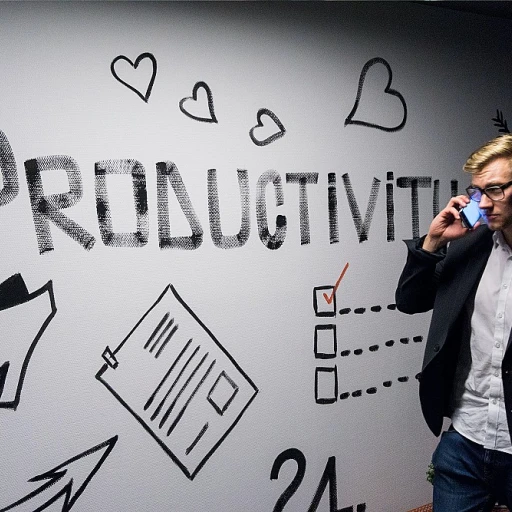
Defining the Event Coordinator Role
What Does an Event Coordinator Do?
The role of an event coordinator is crucial in the realm of event planning and management. They are the backbone behind the seamless execution of events, ensuring that every detail falls into place from start to finish. Event coordinators are responsible for planning, organizing, and overseeing a variety of events, ranging from corporate meetings to dazzling special events. As event management professionals, they must take charge of the various aspects involved in setting up an event, whether it's managing vendors, coordinating logistics, or ensuring that marketing strategies align with the event's objectives.Diverse Responsibilities
The job description of an event coordinator involves a wide array of responsibilities. These include but are not limited to:- Event planning and venue selection
- Coordinating with vendors and suppliers
- Ensuring all logistical aspects are managed
- Handling budgeting and financial tracking
- Implementing marketing strategies to promote events
- Overseeing event setup and takedown
- Problem solving during crises
The Essential Skills Required
To thrive in this role, event coordinators need a unique set of skills, including excellent organizational abilities, creativity in event design, and proficiency in negotiating with vendors. Additionally, a thorough understanding of virtual events and the technology they demand is increasingly important. This blend of skills ensures that coordinators can handle the complexities of their job, fill in gaps when issues arise, and ultimately deliver memorable event experiences. For those seeking more in-depth knowledge, exploring how HR systems manage these roles can provide valuable insights into the operational frameworks that support event coordinators. You can gain further understanding by visiting this article on intermittent leave in HR systems. As the field continues to evolve, event coordinators will face new challenges, but also exciting career opportunities, making it a dynamic and fulfilling occupation for those who thrive in fast-paced environments.Key Skills for Event Coordinators
Essential Competencies for Success
When stepping into the role of an event coordinator, a blend of various skills is crucial to manage the dynamic nature of events successfully. Event coordinators, responsible for ensuring every detail falls into place, need to have a strong skill set that enables them to handle diverse tasks.
Here are some key skills necessary for anyone aspiring to excel in this profession:
- Event Planning and Management: A solid foundation in event planning is necessary for coordinating both special and virtual events. This skill involves organizing all the elements required for an event to run smoothly.
- Attention to Detail: Given their responsibilities, event coordinators must have a sharp eye to fill every gap in planning and execution. Ensuring every detail is in order is crucial for the seamless execution of an event.
- Problem Solving: The ability to think on your feet and solve issues as they arise is vital. Adaptability in addressing unforeseen challenges ensures the continuity of the event.
- Excellent Communication: Effective communication skills are essential in managing interactions with vendors, clients, and team members. It's important to establish clear lines of communication to ensure everyone is on the same page.
- Time Management: Coordinators must juggle multiple tasks and responsibilities event, requiring the ability to prioritize duties and manage time efficiently.
- Vendor and Venue Coordination: Building and maintaining good relationships with vendors and venue managers is a critical aspect of the job. Coordinators must negotiate contracts and ensure all arrangements are finalized as per the event requirements.
Each of these skills not only adds value to a coordinator's job description but also plays a role in navigating the complexities of event management. Understanding the role of accounts payable in modern business can also enhance an event coordinator's efficiency when dealing with budgets and vendor payments. For more insights, check out this comprehensive guide on the role of accounts payable.
Event Coordinator Responsibilities
Core Responsibilities of Event Coordinators
An events coordinator takes on a dynamic job that demands a balanced combination of skills, including adept management and marketing acumen. Their responsibilities form the backbone of successful events. Within this role, coordinators are tasked with handling every aspect of an event, from initial planning stages to post-event analysis, ensuring that each occasion is executed flawlessly.- Planning and Logistics: Event coordinators are engaged from the planning phase, intricately managing the logistics that ensure an event's concept comes to life. This includes selecting venues, designing layouts, and coordinating timelines.
- Vendor Management: Coordinators are the primary point for managing relationships with vendors, negotiating contracts, and ensuring services align with the client's vision. Effective communication is crucial here to meet deadlines and fulfill agreed-upon specifications.
- Marketing and Promotion: A critical part of their job description involves leveraging marketing strategies to promote events. Coordinators work closely with marketing teams to develop campaigns that heighten event visibility and attendee engagement.
- Budget Management: Event coordinators are responsible for creating and maintaining budgets. They must manage resources wisely to ensure that the event achieves its objectives without overspending.
- Team Leadership and Coordination: Effective event coordinators possess strong leadership skills to manage teams throughout the planning and execution stages. They oversee the work of event planners, assistants, and volunteers to ensure a seamless event.
- Problem Solving and Crisis Management: No event is without its challenges. Coordinators must employ sharp problem-solving skills to address unforeseen issues promptly, minimizing disruptions through efficient crisis management.
- Post-Event Analysis: Once the event concludes, coordinators undertake a comprehensive post-event evaluation to assess success against objectives. This analysis often involves gathering feedback from attendees and stakeholders, identifying areas for improvement in future events.
Challenges Faced by Event Coordinators
Tackling Obstacles in Event Coordination
Being an event coordinator is no small feat. This job comes with a unique set of challenges that coordinators need to overcome to ensure successful event planning and execution. Here are some typical hurdles faced by event coordinators:
- Venue Constraints: A venue might impose certain restrictions on decorations or capacity, which means the coordinator needs to be adaptable and creative, ensuring the event space is used effectively.
- Vendor Issues: Coordinators often deal with unpredictable vendors, such as delays in supplies or service quality issues. Ensuring clear communication and having a list of reliable vendors can alleviate these problems.
- Time Management: Coordinators juggle multiple tasks simultaneously—from planning details to managing special events. They need impeccable time management skills to prioritize tasks and meet deadlines.
- Budget Management: Keeping an event within budget while meeting expectations is a common challenge. Coordinators need strong negotiation skills to strike a balance between cost and quality.
- Communication: Clear and effective communication is critical, whether it's with the event team, vendors, or clients. Miscommunications can lead to significant problems and impact the overall success of the event.
- Problem Solving: Events rarely go exactly as planned, so coordinators must be adept at problem-solving, quickly addressing issues that arise to ensure smooth proceedings.
Moreover, the rise of virtual events and hybrid models adds another layer of complexity. Coordinators must be equipped to handle technology-related hiccups and ensure a smooth virtual experience.
Handling these challenges effectively is essential for any event coordinator looking to excel in their field, and it requires continuous learning and adaptability.
Career Path and Opportunities
Career Growth and Opportunities in Event Coordination
The career path for an event coordinator can be both diverse and rewarding, offering numerous opportunities for growth and specialization. For those beginning their journey, understanding the dynamics and responsibilities of the coordinator job is crucial. As coordinators gain experience and master key skills such as meticulous planning, attention to detail, and adept problem solving, they can progress to more advanced roles. Initial stages in an event coordinator's job description typically revolve around supporting event planning and providing logistical assistance. This includes coordination with vendors, managing communication with clients, and ensuring smooth execution of events. As coordinators build a client's trust and demonstrate capability, they may transition to roles with increased responsibilities.- Event Manager: Typically, after several years of experience, coordinators might step into event management roles. This position involves overseeing larger teams and more complex events, from special to virtual events. Event managers are responsible for managing budgets, negotiating contracts, and leading the overall event strategy.
- Event Planning Specialist: Coordinators who prefer to focus on specific types of events may specialize in certain areas, such as corporate events, weddings, or trade shows. This specialization allows them to refine their skills and can lead to niche markets where expertise is highly valued.
- Marketing and PR Roles: Given the overlap between event planning and marketing, some coordinators may move into marketing roles, using their event management skills to handle promotional activities and branding efforts.
Integrating HR Information Systems in Event Coordination
Leveraging HR Information Systems in Event Coordination
In the dynamic world of event planning, where coordinators juggle multiple responsibilities, integrating Human Resources Information Systems (HRIS) can be a game-changer. These systems streamline various aspects of the job, from managing staff to ensuring seamless communication with vendors and clients. Here's how HRIS can enhance the role of an event coordinator:
- Efficient Staff Management: HRIS allows coordinators to efficiently manage staff schedules, track hours, and ensure that the right people are in the right place at the right time. This is crucial for both small gatherings and large-scale events.
- Centralized Communication: By providing a centralized platform for communication, HRIS helps coordinators keep all stakeholders informed and aligned. This is particularly beneficial when dealing with multiple vendors and venues.
- Data-Driven Decision Making: Access to real-time data on employee performance and event outcomes enables coordinators to make informed decisions. This data can be invaluable for post-event analysis and future planning.
- Streamlined Recruitment: For events requiring temporary staff, HRIS can simplify the recruitment process, from posting job descriptions to conducting interviews and onboarding new hires.
- Enhanced Problem Solving: With comprehensive data at their fingertips, coordinators can quickly identify and address issues, ensuring that events run smoothly and efficiently.
By integrating HRIS into their workflow, event coordinators can not only enhance their own efficiency but also improve the overall experience for attendees. As the industry continues to evolve, the adoption of such systems will likely become a standard practice, further professionalizing the field of event management.













